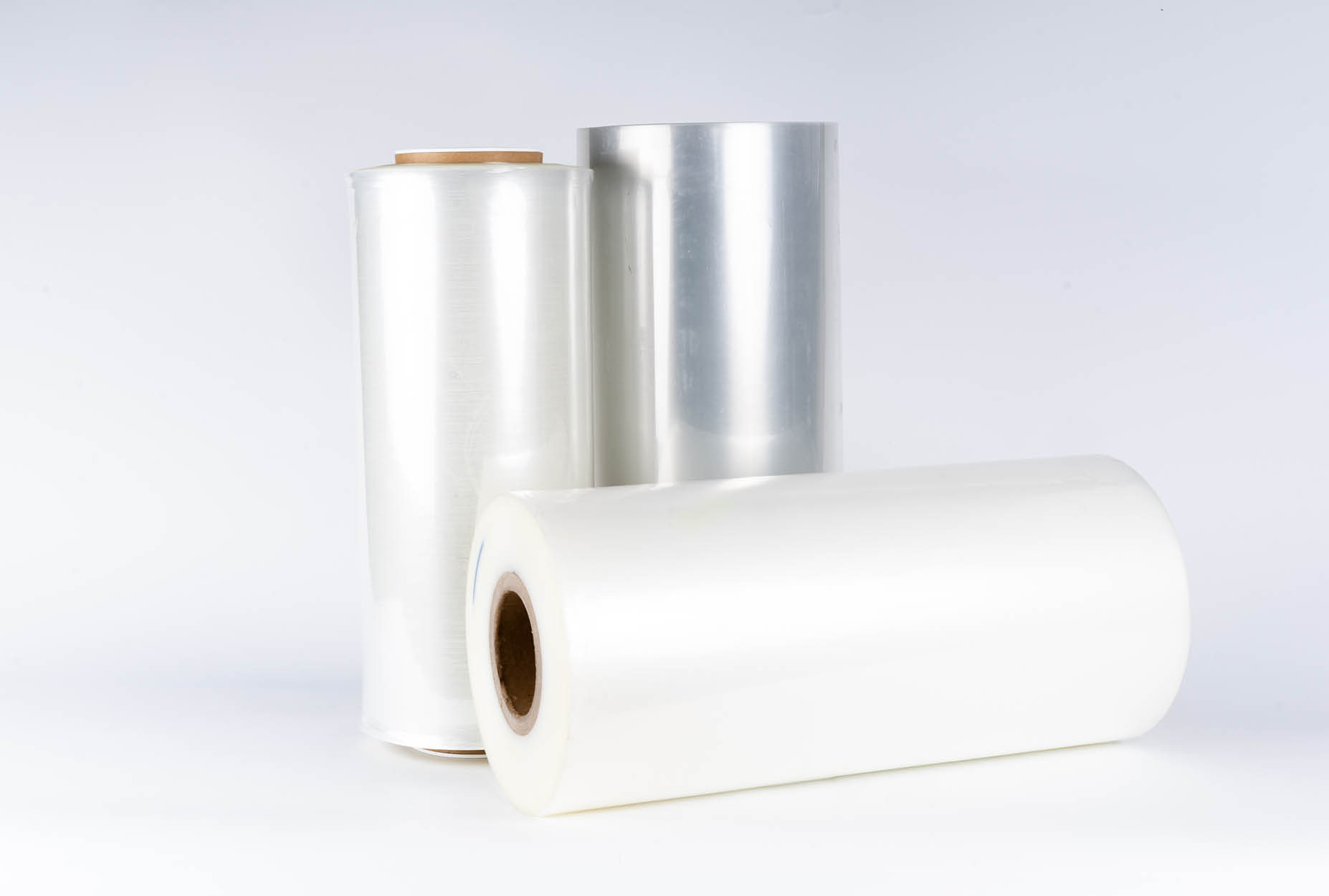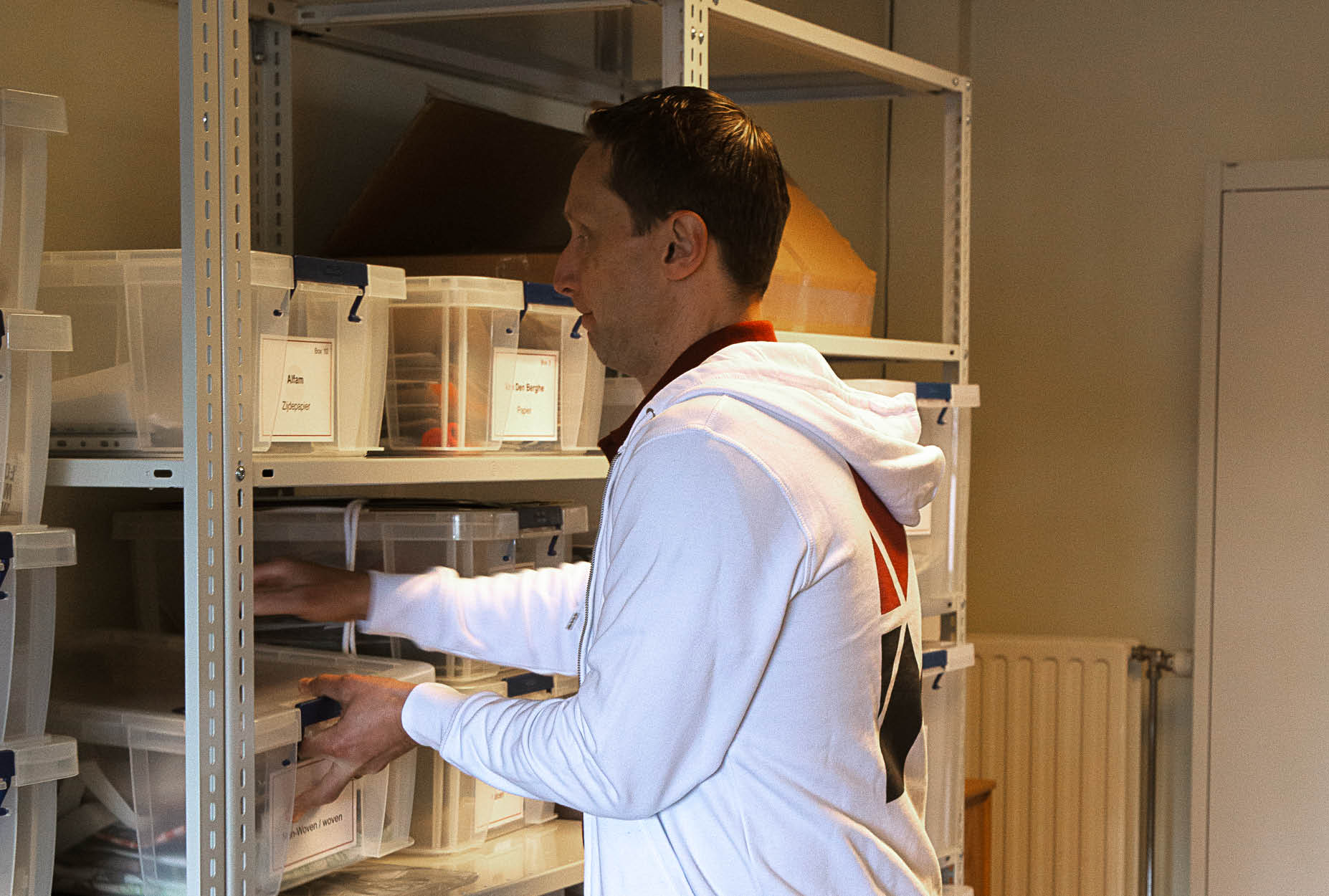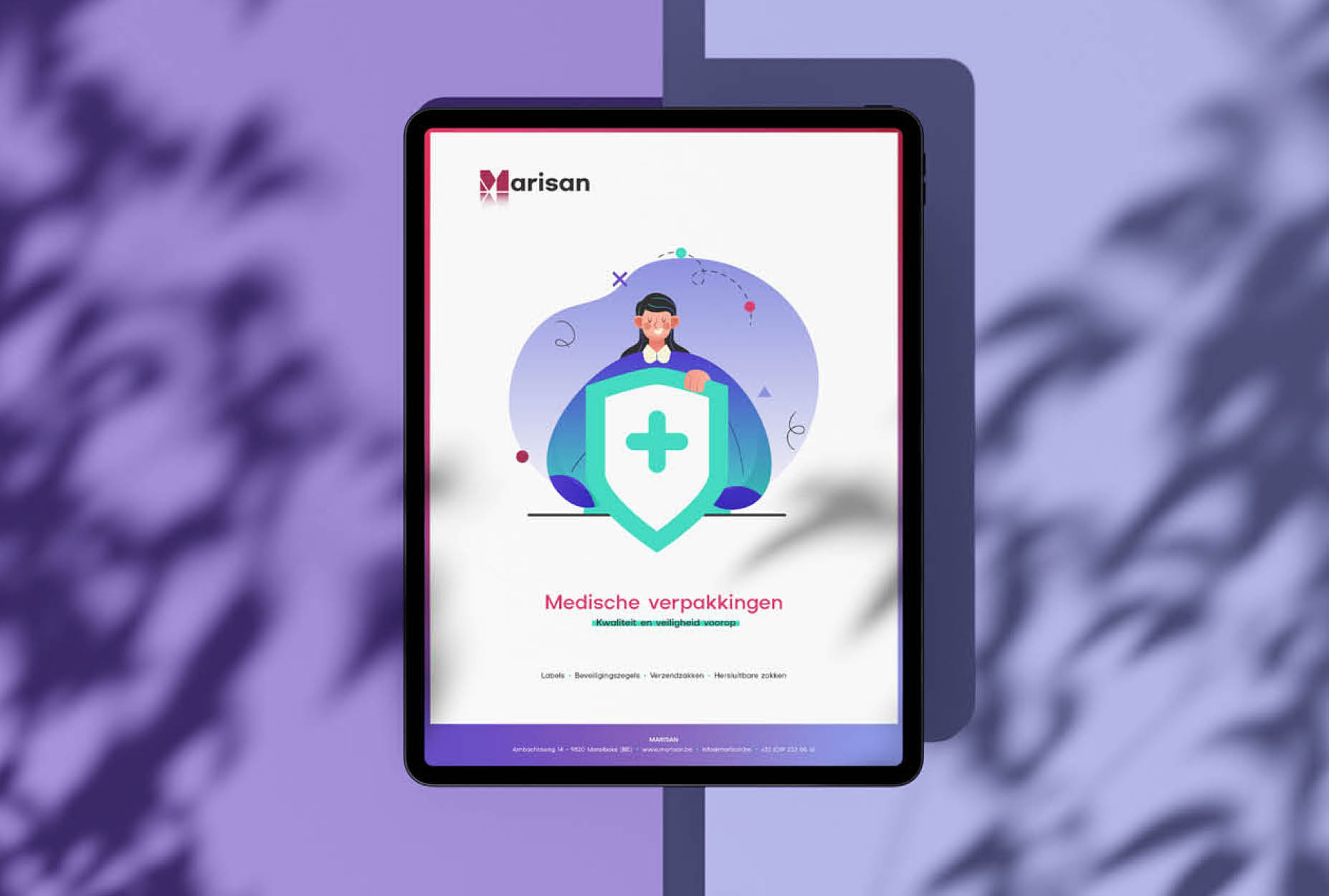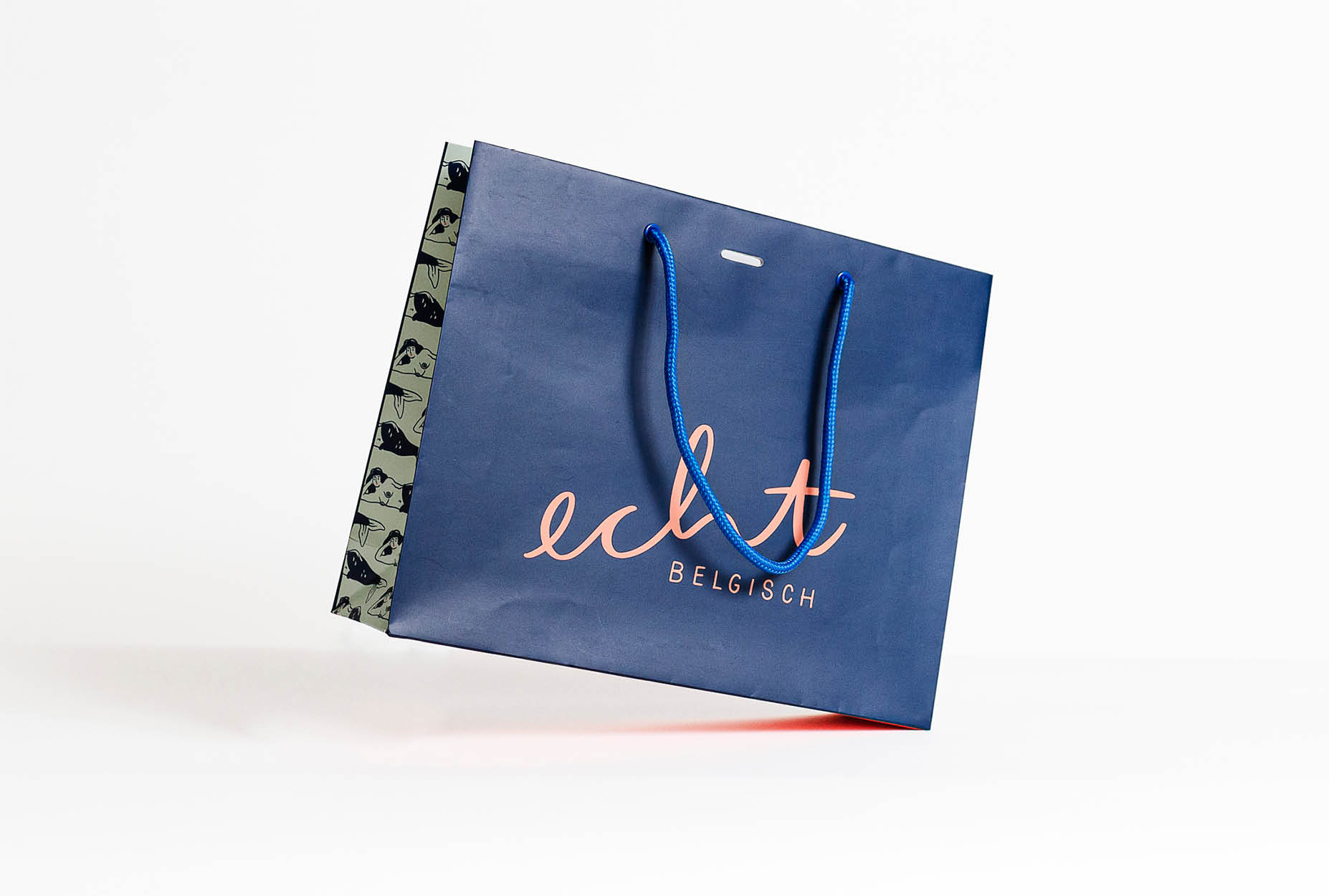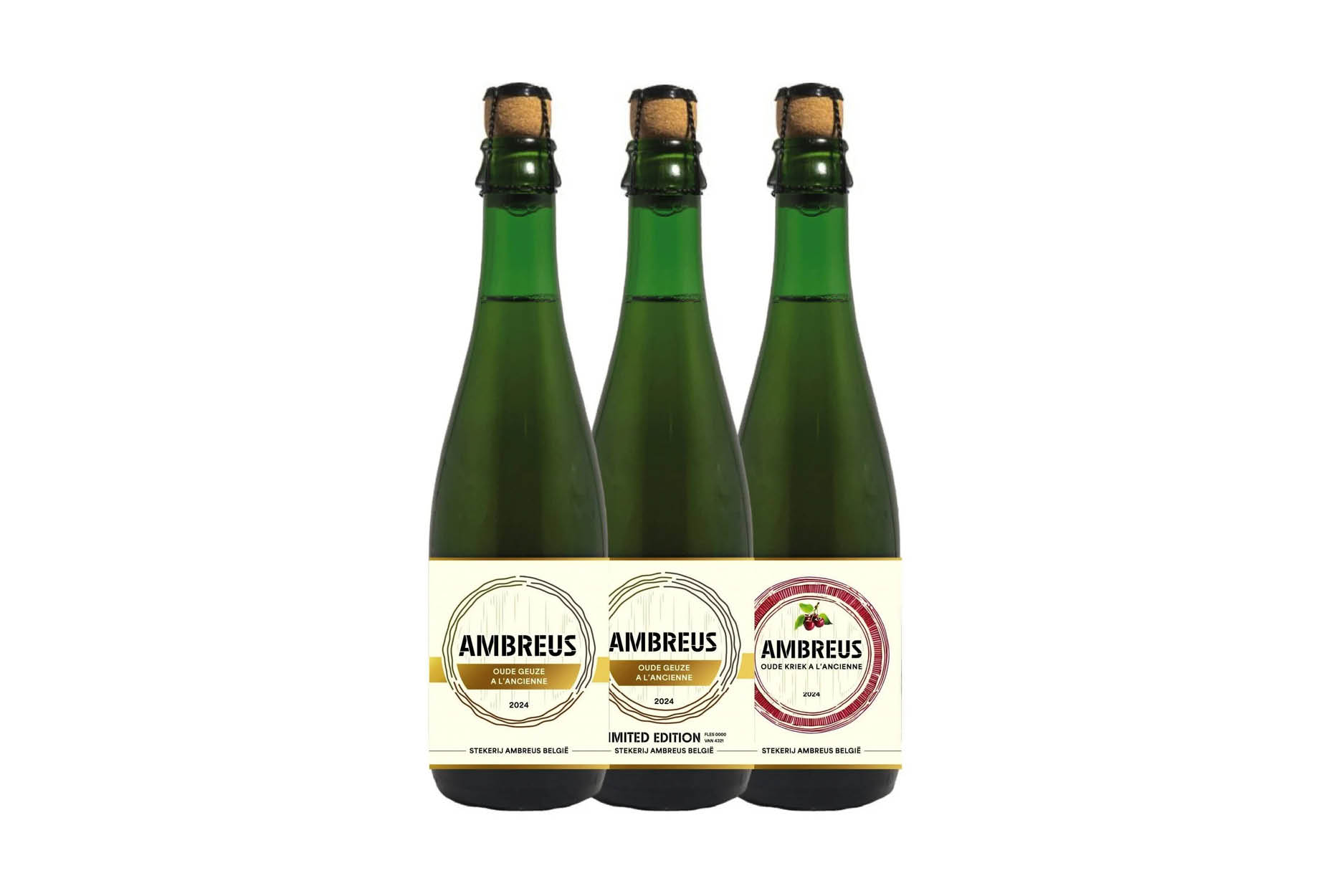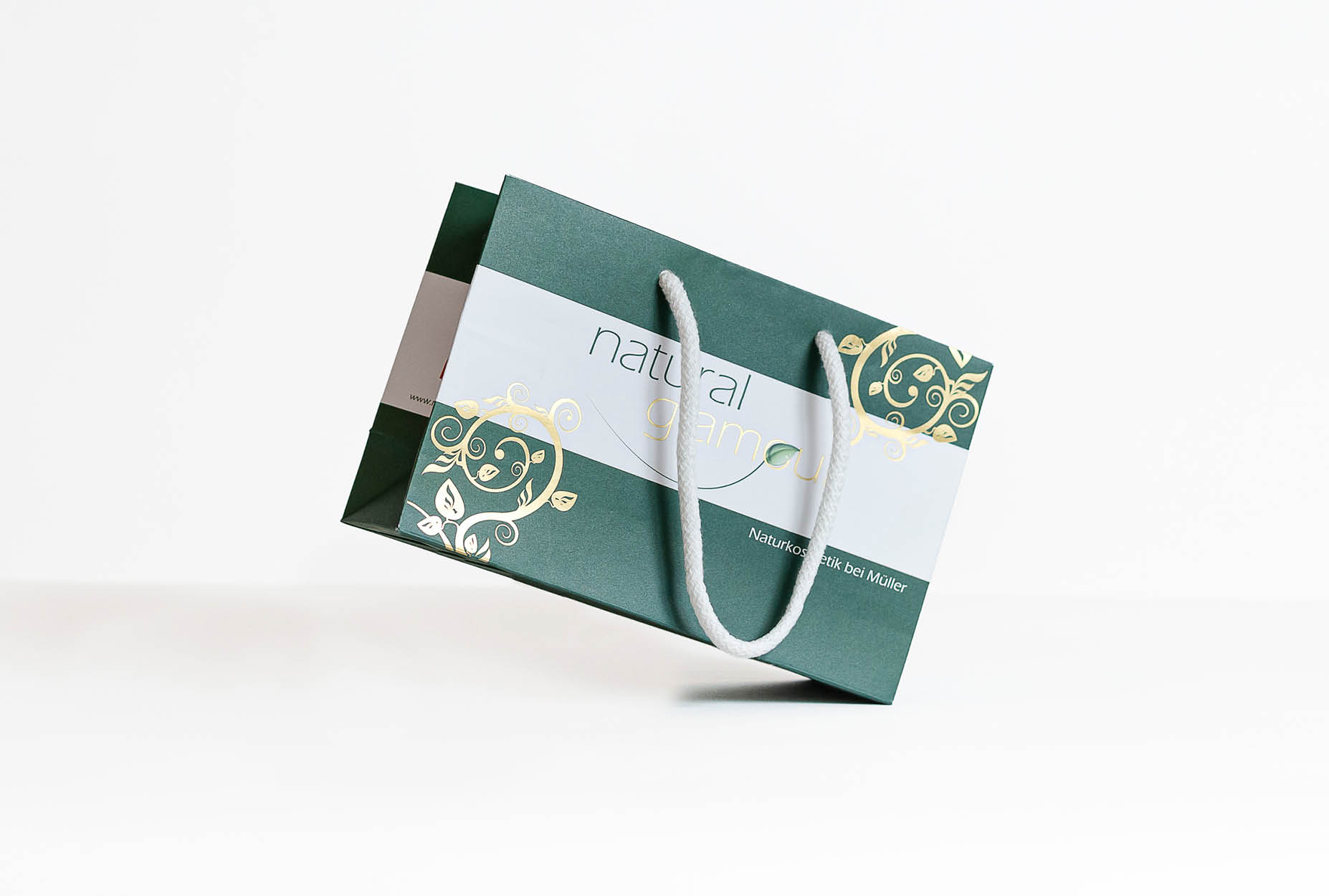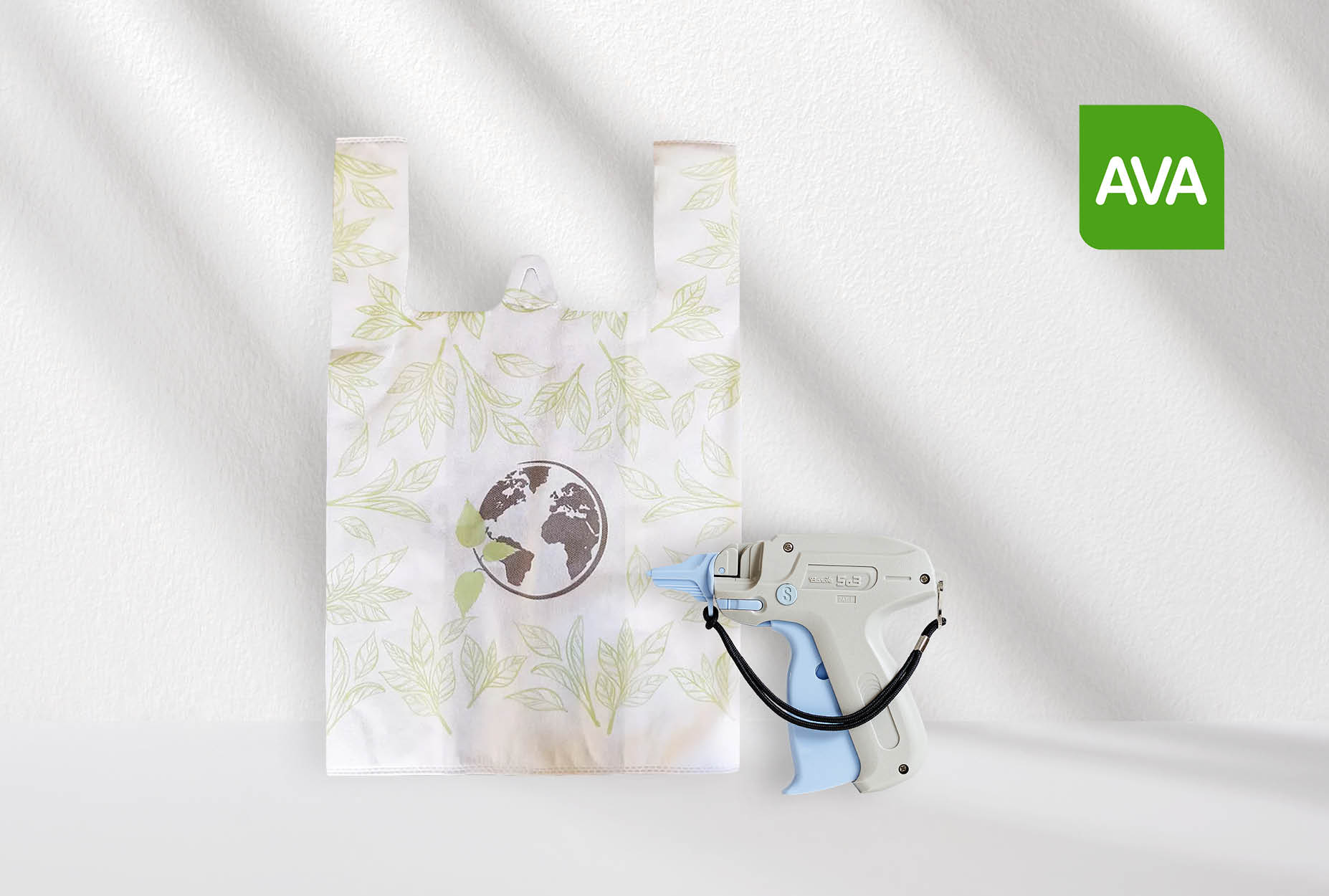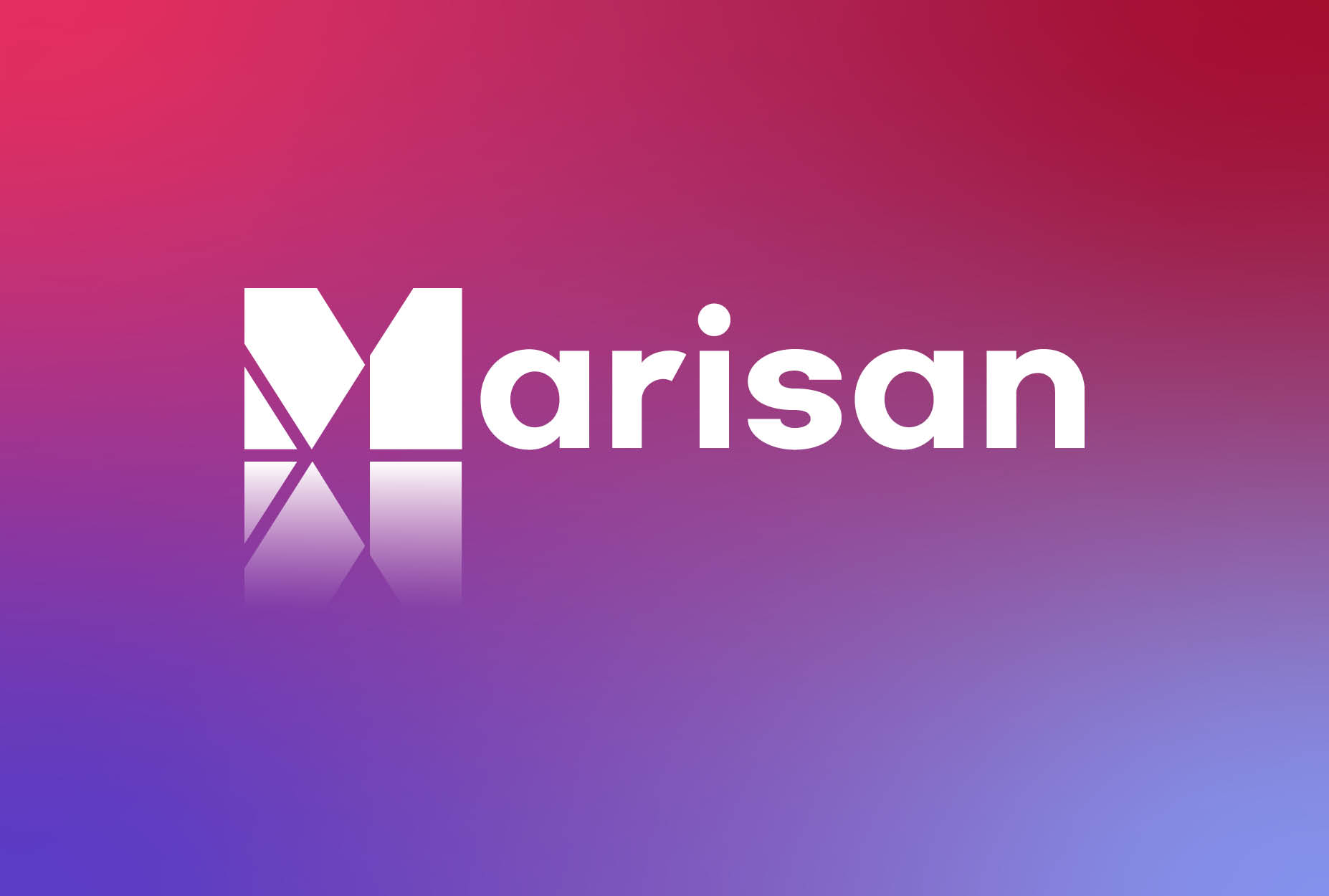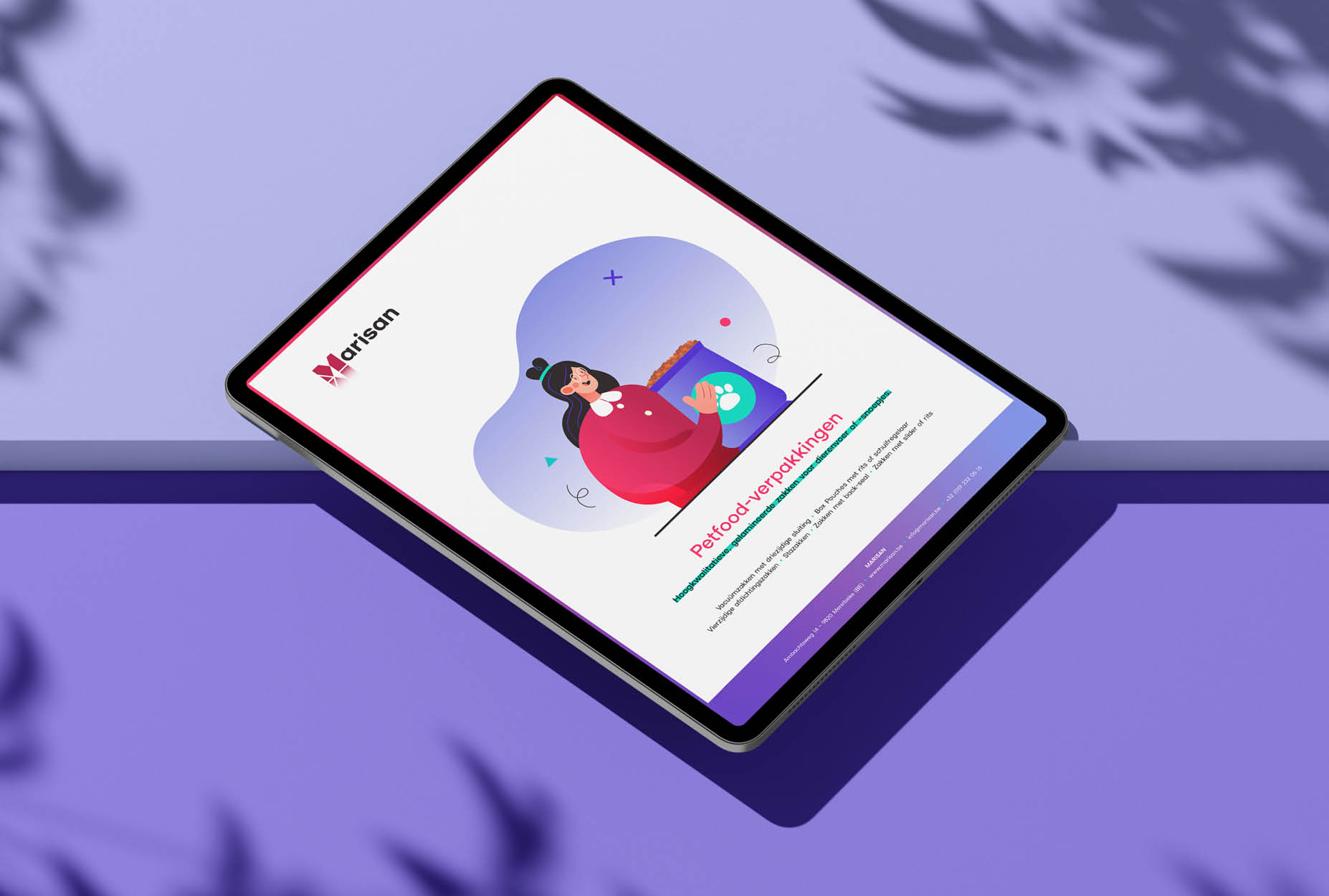Knowledge centre
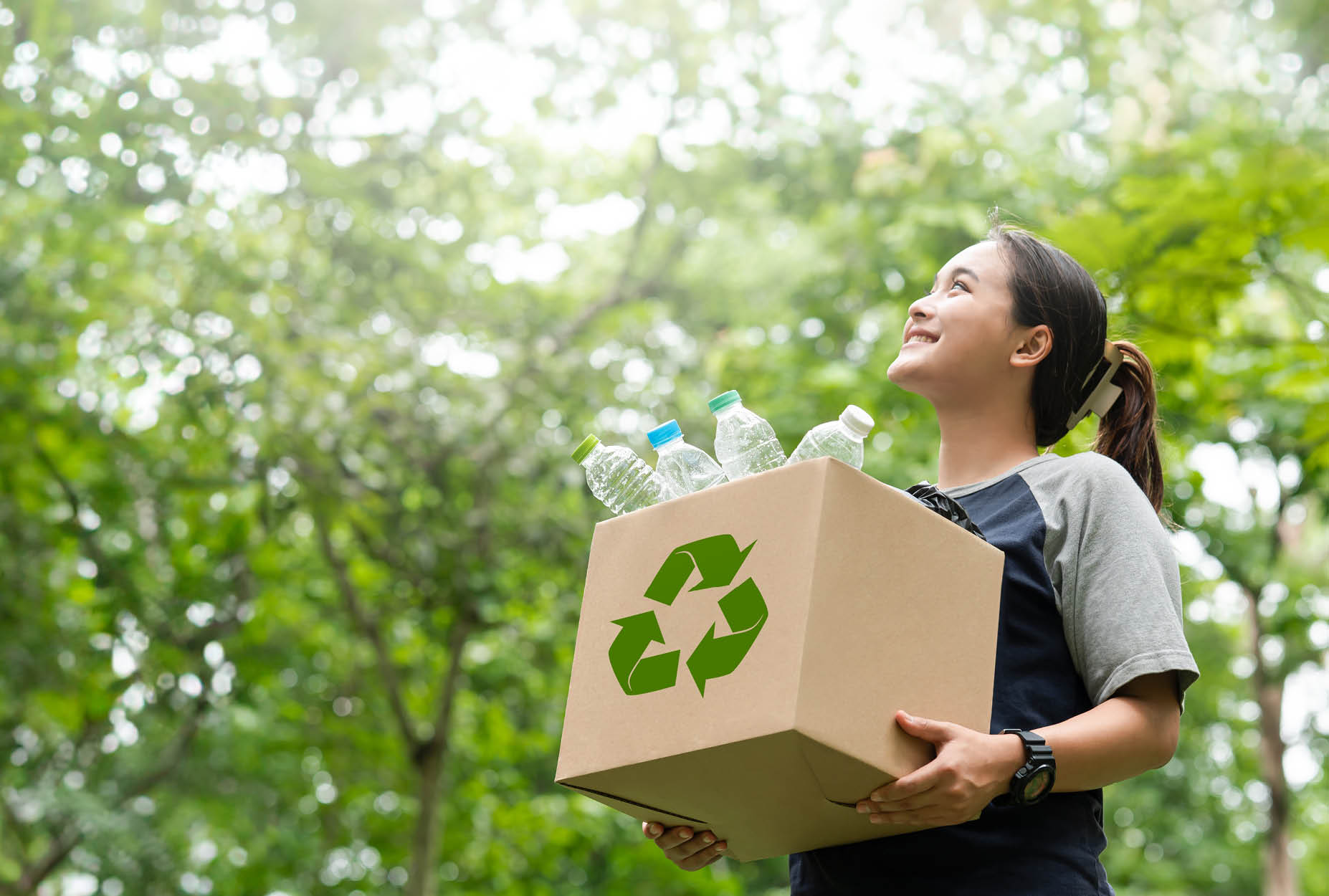
Ecolabels deciphered: the meaning of green symbols on packaging
In a world where sustainability is becoming increasingly important, green labels and eco-labels play a crucial role in the recognition of environmentally friendly packaging. Whether you are a conscious consumer or a company committed to responsible production, understanding these symbols is essential. These labels not only provide information about the environmental friendliness of a product, but also help you make more sustainable choices. In this blog we dive deep into the world of green labels.
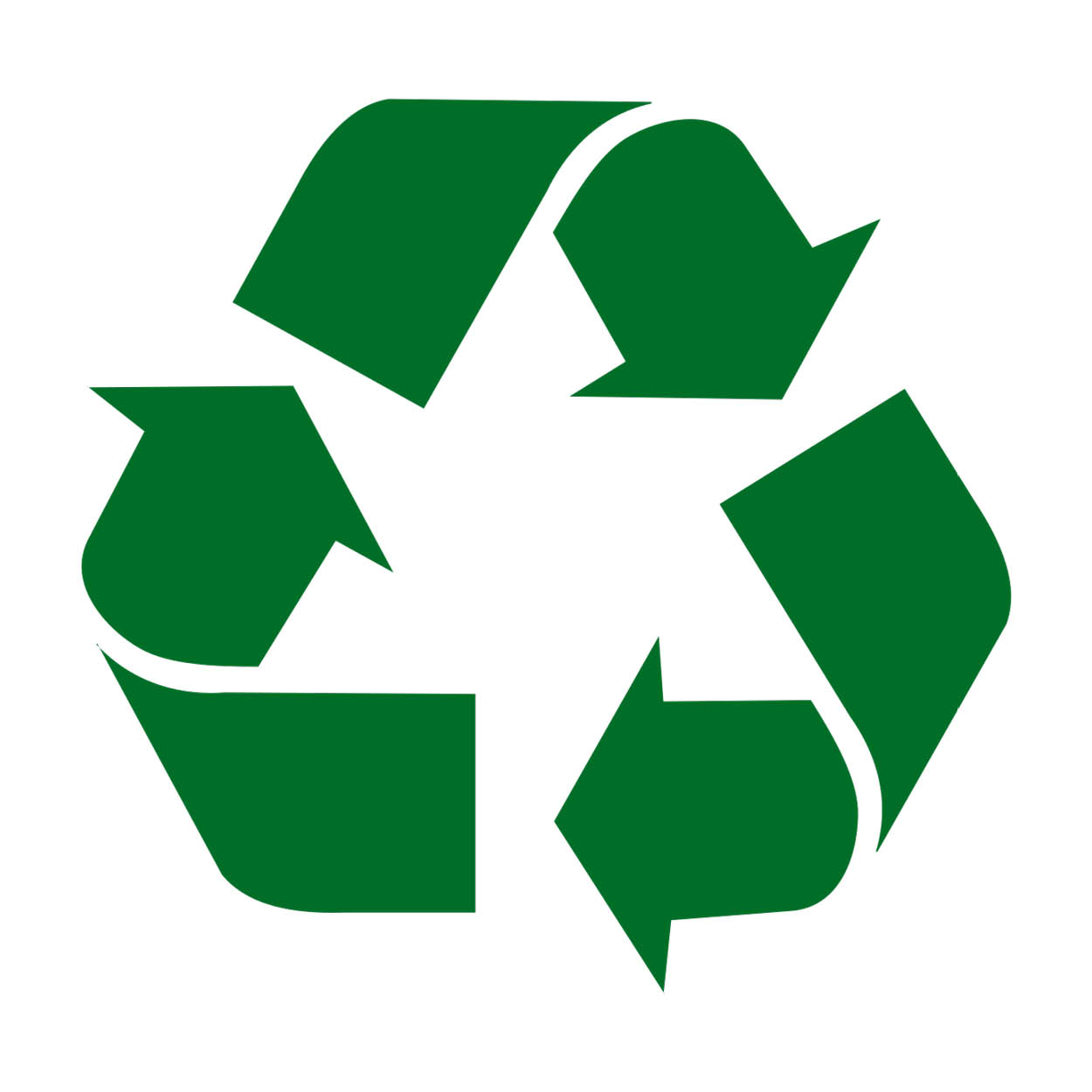
The recycling symbol
This symbol is the globally known recycling logo, often referred to as the 'Mobius loop' or the 'recycling symbol'. It was originally designed by Gary Anderson in 1970, during a competition organized by Container Corporation of America. The symbol consists of three chasing arrows that form an infinite loop, emphasizing the circular nature of recycling.
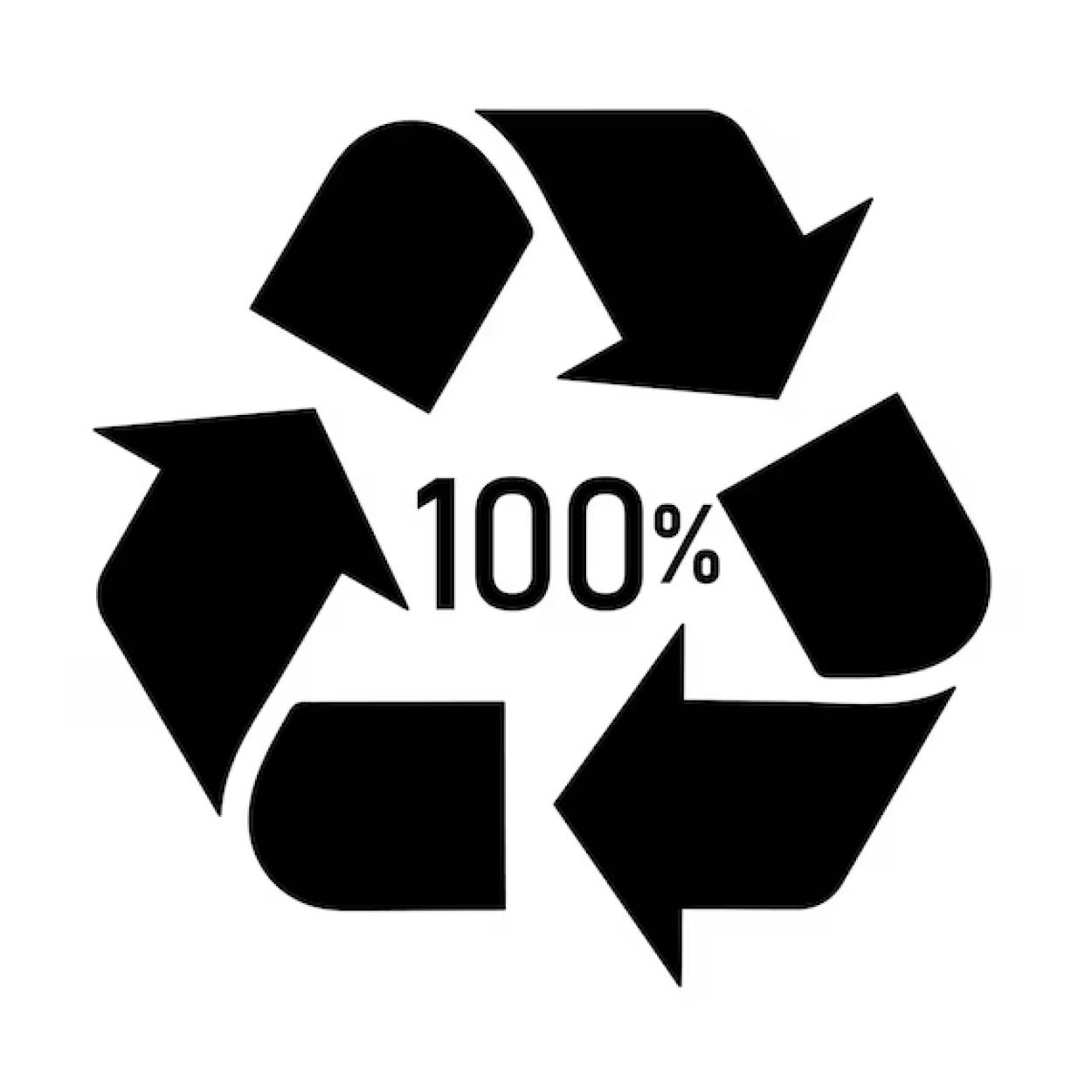
The recycling symbol with number
This logo is a variation on the previous logo. The text or numbers inside the symbol often provide additional information. In this specific case, the figure '100%' means that the product consists entirely, or 100%, of recycled material. This symbol helps consumers identify products that help reduce waste through the use of recycled materials. The symbol is also recognizable worldwide and is widely used to promote environmental awareness and support recycling practices.
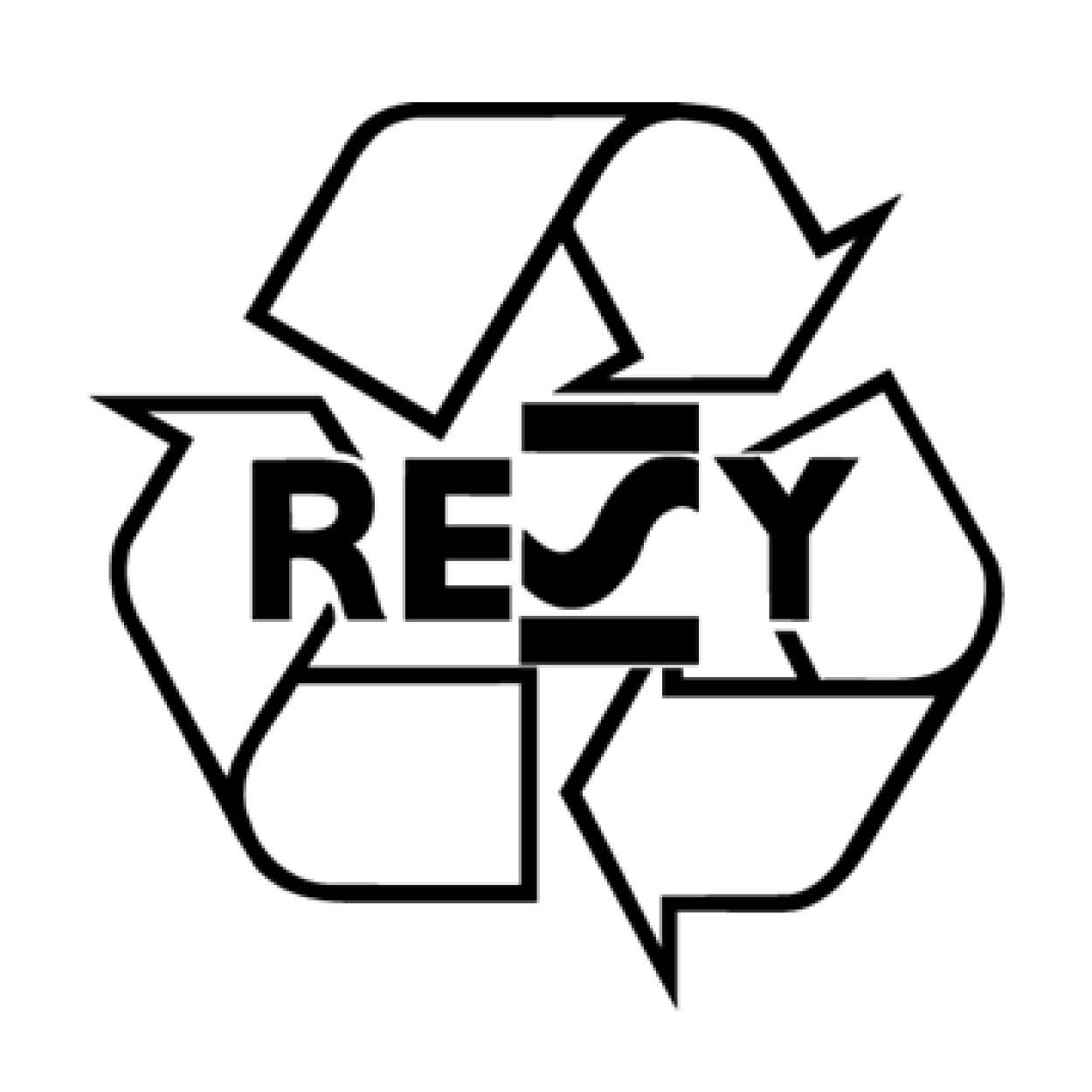
The RESY symbol
This symbol is the RESY logo, which is often found on packaging and products in Germany. The RESY symbol guarantees that the packaging is recyclable and that its paper and cardboard will be recycled.
There are sometimes 4 numbers below the logo, which indicates the registration number of the company that produced the packaging.
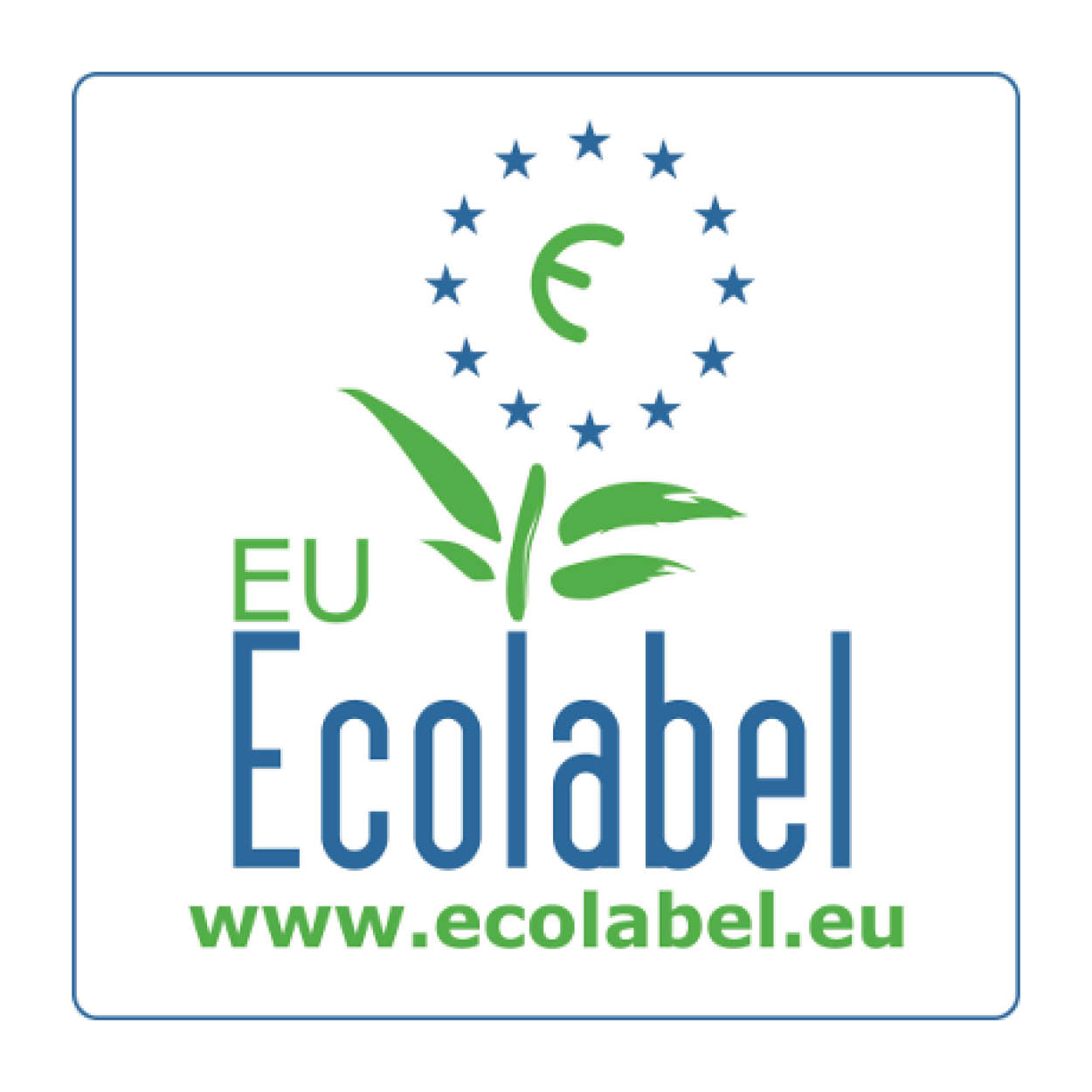
The EU Ecolabel
Here you find the EU Ecolabel, an official environmental mark of the European Union. The EU Ecolabel was established in 1992 and is awarded to products and services that meet high environmental performance standards throughout their life cycle, from raw material extraction to production, distribution and disposal.
Products with the EU Ecolabel must meet strict environmental criteria set by experts and stakeholders from across the EU. These criteria include energy consumption, water consumption, emissions to air and water, and waste management.
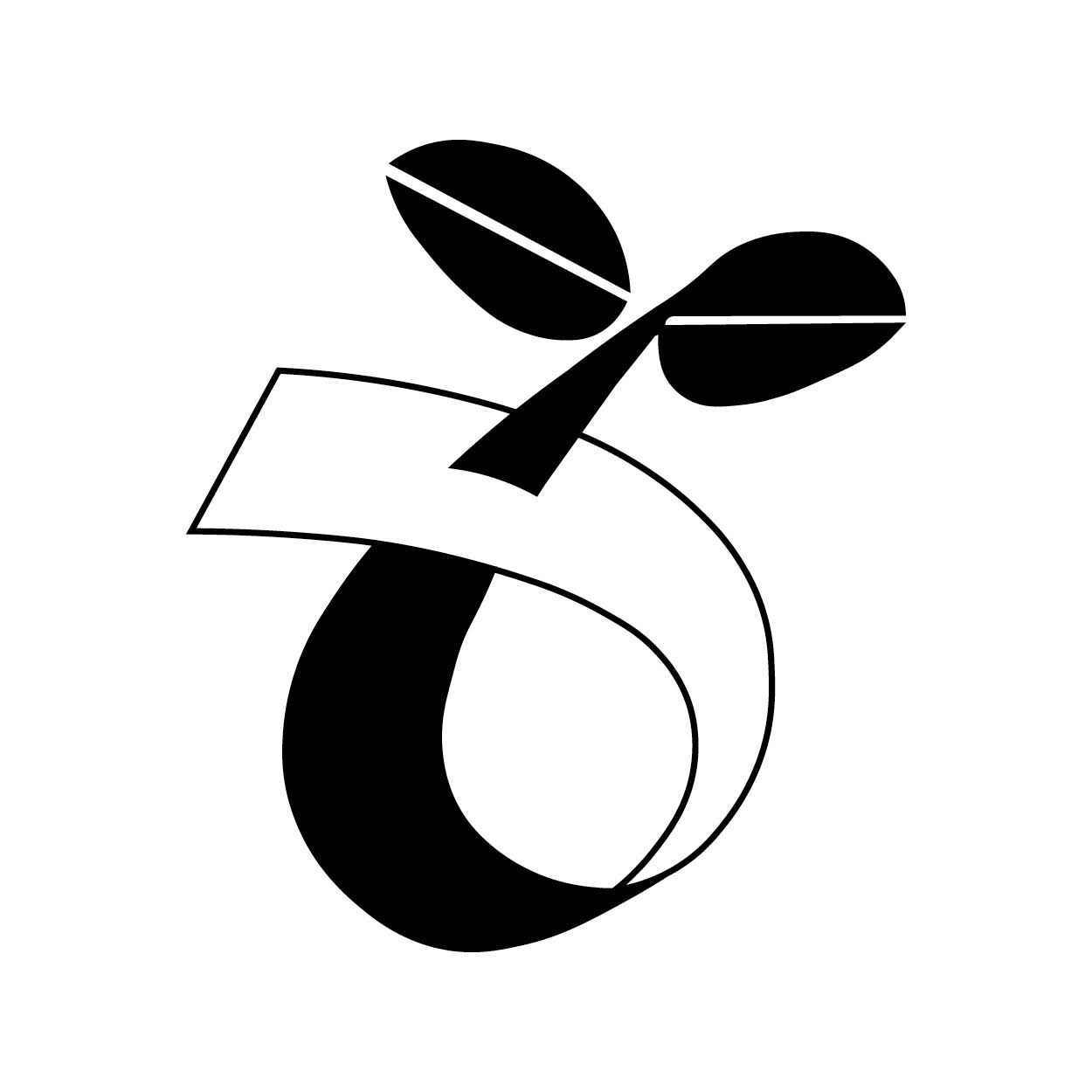
The Seedling logo
This symbol is the Seedling logo, operated by European Bioplastics. The label indicates that a product or material is compostable according to the European standard EN 13432.
In concrete terms, this means that the product is biodegradable and will break down in an industrial composting facility within a certain period of time without leaving harmful residues.
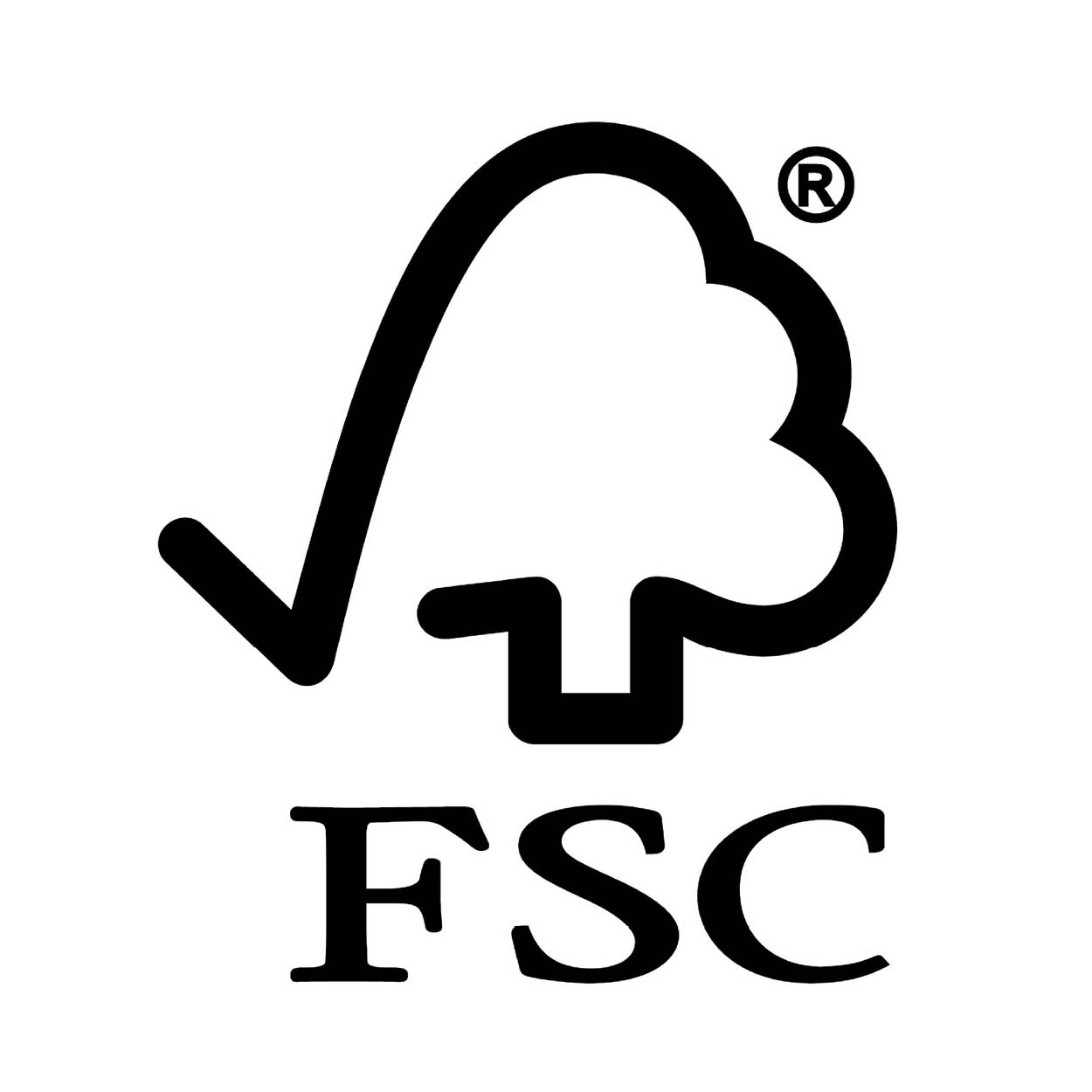
The FSC symbol
This symbol represents the Forest Stewardship Council (FSC). The FSC logo is an internationally recognized quality mark that indicates that the wood or paper in the product comes from responsibly managed forests that offer benefits to the environment, society and economy.
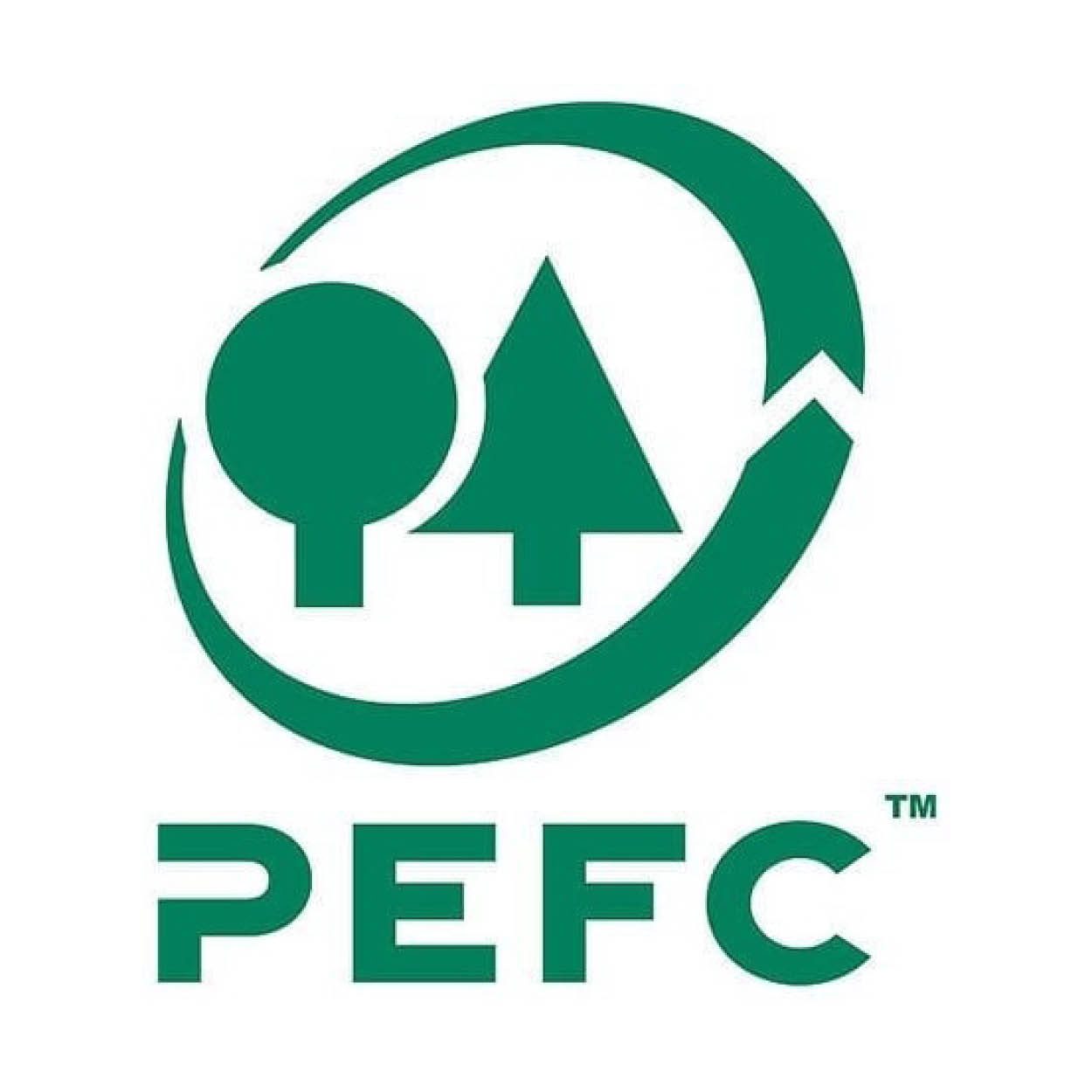
The PEFC quality mark
This symbol represents the PEFC (Programme for the Endorsement of Forest Certification) quality mark. The PEFC logo is an internationally recognized certification system for sustainable forest management.
In this way, it guarantees that the wood products come from forests that are managed sustainably, with attention to ecological, social and economic factors.
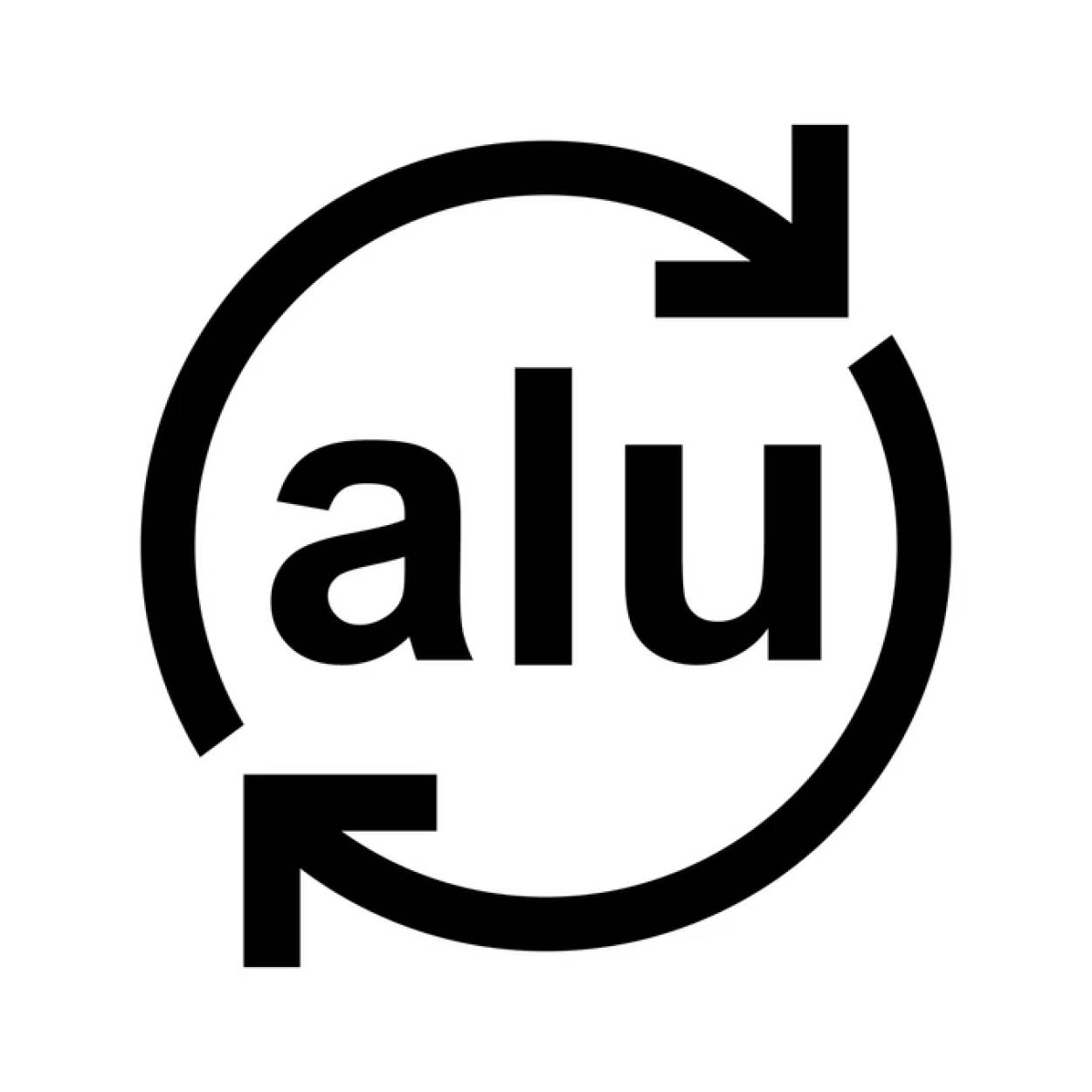
The recycling symbol for aluminum
This symbol represents the recycling symbol for aluminum and indicates that the product or packaging is made in whole or in part from aluminum which is recyclable.
Aluminum is one of the most valuable and efficient materials to recycle because it can be melted down and reused without loss of quality.
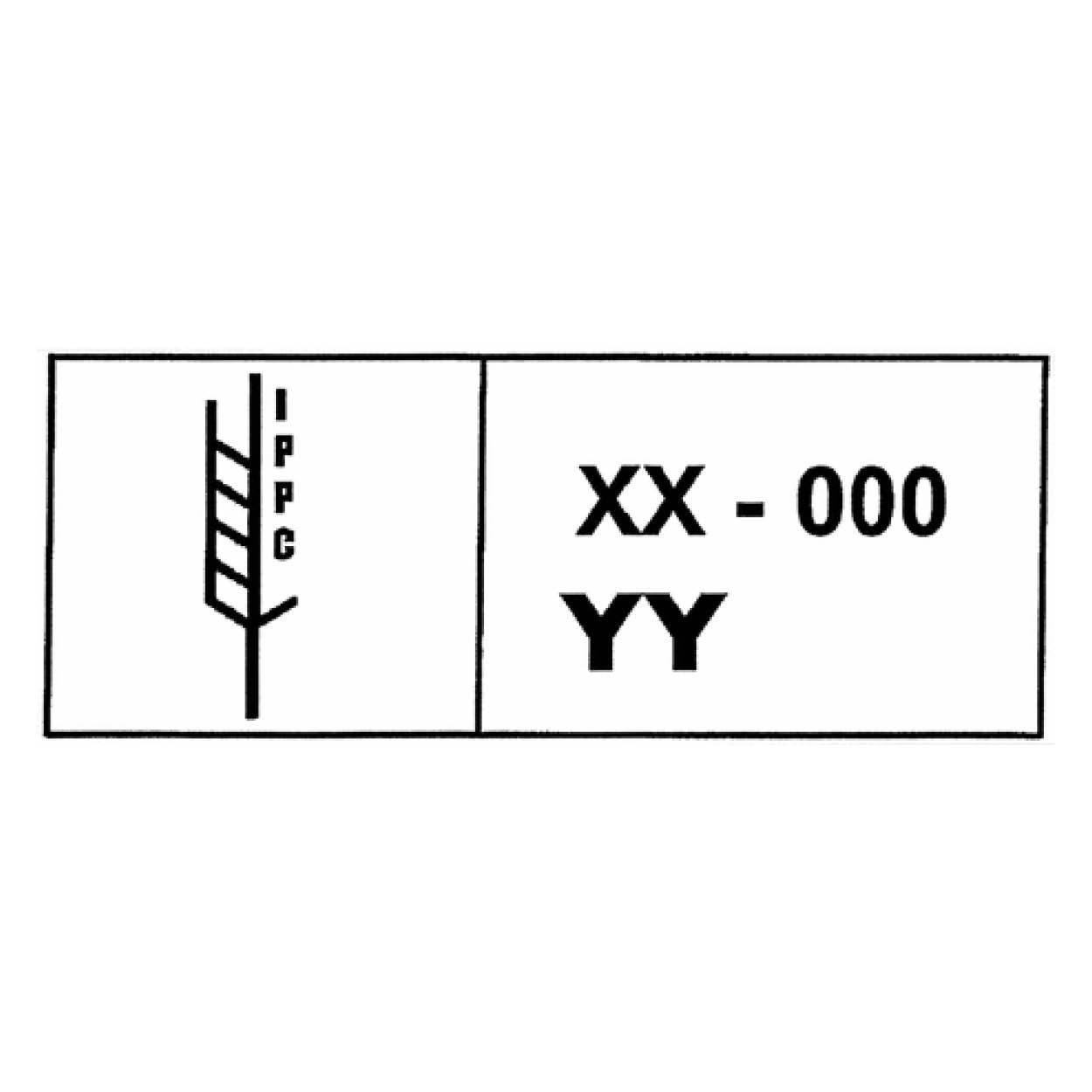
IPPC logo
This symbol is a marking that refers to the ISPM 15 standard, which stands for the International Standard for Phytosanitary Measures. This standard was developed by the International Plant Protection Convention (IPPC) to prevent the spread of harmful organisms and pests through wooden packaging materials.
- The two-letter code (XX) indicates the country of origin according to the ISO 3166 standard.
- The unique registration number (000) is a unique code assigned to the manufacturer or handling facility of the wood packaging material.
- The treatment code (YY) indicates the treatment method applied to the wood to eliminate harmful organisms. The most common codes are:
- HT: Heat Treatment
- MB: Methyl Bromide (fumigation with methyl bromide)
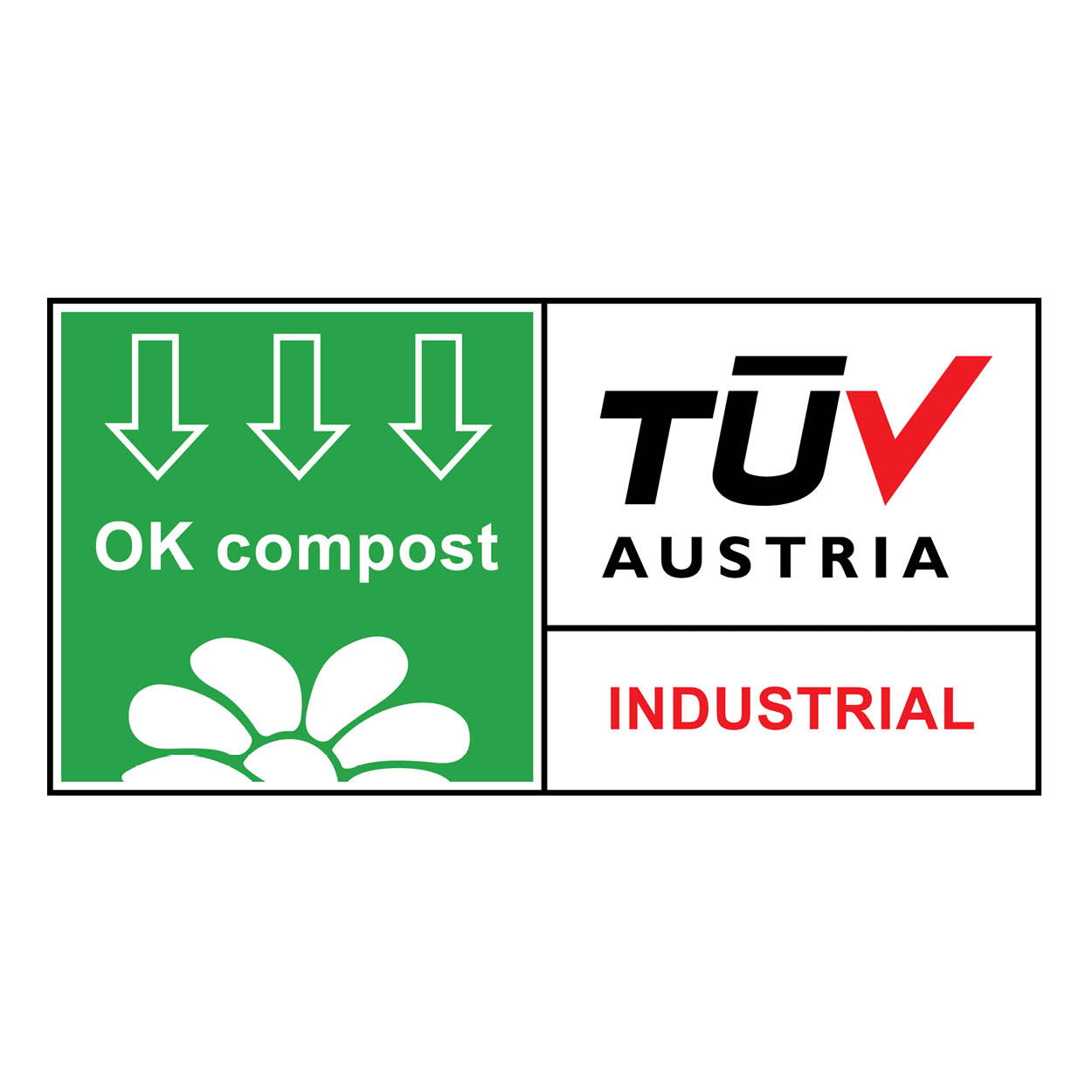
OK compost industrial label
This label guarantees that a product will break down in an industrial composting facility under the right conditions. Industrial composting provides controlled conditions of temperature and humidity necessary for the degradation of compostable materials.
TÜV Austria is a recognized body that certifies the compostability of products. The OK compost label indicates that the product has passed the strict tests and standards set by TÜV Austria.
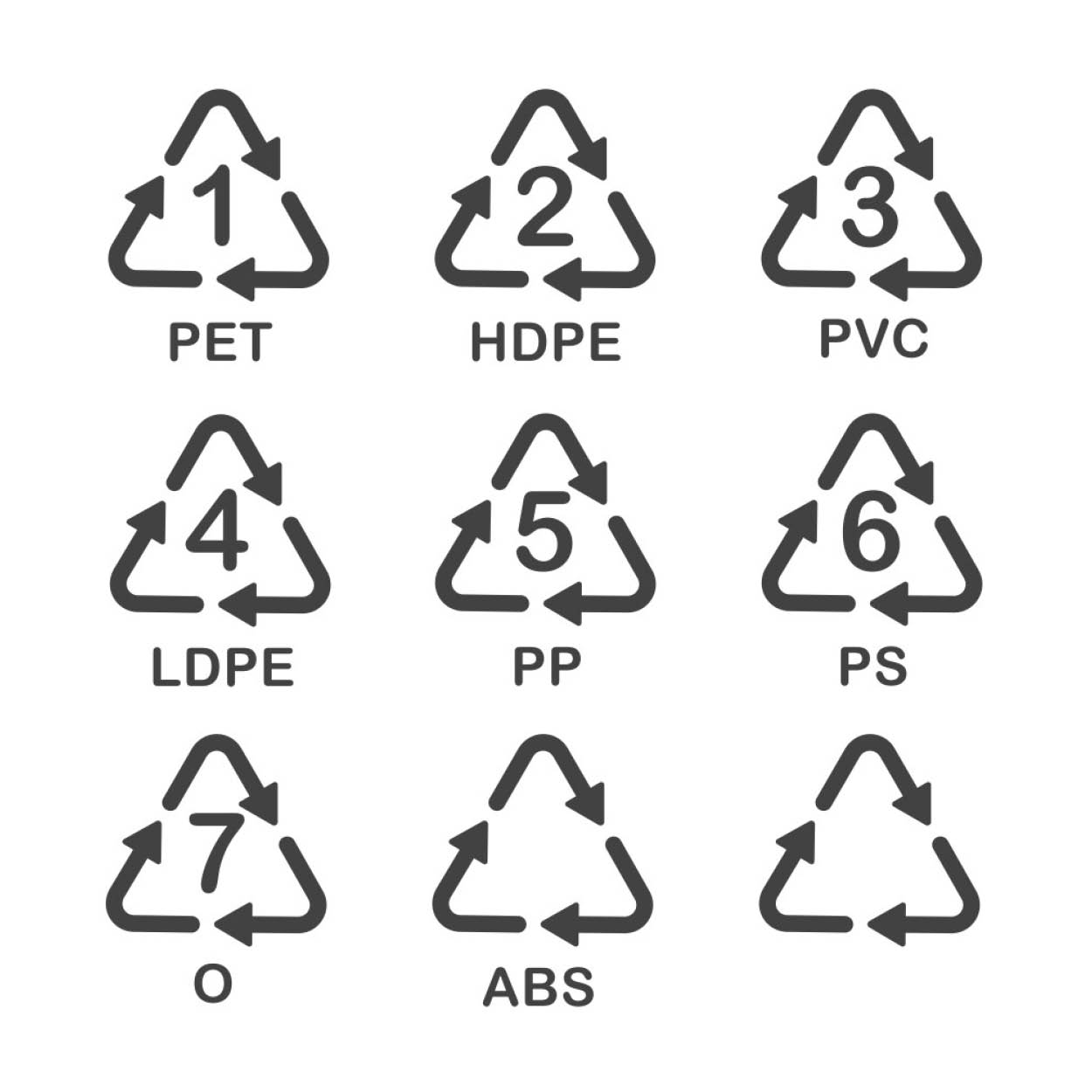
The symbols on plastic packaging
PET (Polyethylene Terephthalate): Found in plastic bottles, polyester fibers and films such as soft drink bottles.
HD-PE (High-Density Polyethylene): Used for plastic bottles, bags, garbage cans, pipes and artificial wood.
PVC (Polyvinyl chloride): Used in frames, pipes and bottles for chemicals or glue, for example.
LD-PE (Low-Density Polyethylene): Used in plastic bags, buckets, soap dispenser bottles and plastic tubes.
PP (Polypropene): Used for bumpers, automotive interior panels and industrial fibers.
PS (Polystyrene): Found in toys, flower pots, video cassettes, ashtrays, suitcases and polystyrene foam.
O (Other plastics): Includes materials such as PMMA (e.g. Perspex), polycarbonate, polyamide (e.g. nylon), ABS and fibre-reinforced plastic.
If plastics consist of 100% monomaterial (i.e. made entirely of one of the above substances), recycling becomes a lot easier. So such a mention on packaging is a great added value!
In the above summary we have tried to list the most important green labels that apply in Belgium. However, there are many more labels worldwide, each with their own regulations and specifications. For example, France has the Triman Symbol, which is mandatory on every packaging, put on the French market, to indicate whether a product or packaging is (partially) recyclable and how the material should be separated.
The world of ecolabels is diverse and very complex. So do you still have questions or uncertainties? Please feel free to contact us, we will be happy to help you!
Explore further
Manual or machine wrapping: which stretch wrap is right for your company?
Blog
NogMeerVerdiepen
Stretch wrap is essential for the safe and efficient shipping of products. It ensures that your loads remain well protected during transport and prevents damage. But when do you choose manual wrapping and when is a machine solution a better choice?
Read moreMarisan continues the excellent service for Eti-Machine customers
Nieuws
NogMeerVerdiepen
On August 31, 2024, Leo, founder of Eti-Machine, closed the doors of his business after more than 60 years. Leo started his company in 1960 as a pioneer in Belgium in the field of labels on rolls. The company grew into a key player on the market, and f.e. became the principal supplier.
Read moreWhitepaper: Packaging solutions tailored to your medical lab or hospital
Whitepaper
NogMeerVerdiepen
In the medical sector, choosing the right packaging solutions is crucial. Whether it’s laboratories, hospitals or pharmaceutical companies, every application requires packaging and/or labels that meet strict standards and specific needs. Our latest whitepaper provides in-depth insights and practical solutions.
Read moreMarketing on the move: carrier bags with your own logo
Blog
Duurzaamheid
NogMeerVerdiepen
Having carrier bags printed with your own logo is an excellent way to give your brand visibility and offer your customers a practical and stylish solution. At Marisan, we understand the importance of high-quality shopping bags that are not only functional, but also an extension of your brand.
Read moreAmbreus finds labeling solution in Botlr
Case
Succesverhalen
We spoke with Jean-Pierre Decoster and his son Erik from Ambreus about their journey from a small geuze producer to a successful business. They shared their experiences with labeling challenges and how the Botlr labeling machine from Marisan helped them overcome these obstacles.
Read moreHow packaging influences customer experience and brand perception
Blog
Duurzaamheid
NogMeerVerdiepen
In the dynamic world of marketing and branding, packaging plays a crucial role in how consumers perceive and experience a product. At Marisan, experts in innovative packaging solutions, we understand that the right packaging not only catches the customer's attention, but also leaves a lasting impression.
Read moreThrough Marisan in the market, through AVA to the consumer
Case
Duurzaamheid
Succesverhalen
AVA, known for its wide range of catering and retail supplies, has been a loyal partner of Marisan for years. In an interview with Stefan from AVA, we explore the depths of this collaboration, the products offered and the future plans amidst changing market dynamics and legislation.
Read moreWelcome to the new Marisan: renewed, refreshed and ready for the future!
Nieuws
NogMeerVerdiepen
Welcome to the new era of Marisan! Our journey of innovation brings us more than just a visual metamorphosis; it is a complete reinvention of how we present ourselves to the world, both online and offline. Step inside our world where innovation, clarity and customer focus are the cornerstones of everything we do!
Read moreFree whitepaper ‘Your pet food presented in a catchy way’
Whitepaper
NogMeerVerdiepen
Did you know that your choice of pet food packaging says as much as the crispy chunks inside? We are Marisan, a packaging specialist in many sectors for many years, and we would like to introduce ourselves to you! From the first conversation to that last label on the bag, we understand what your brand needs.
Read more

